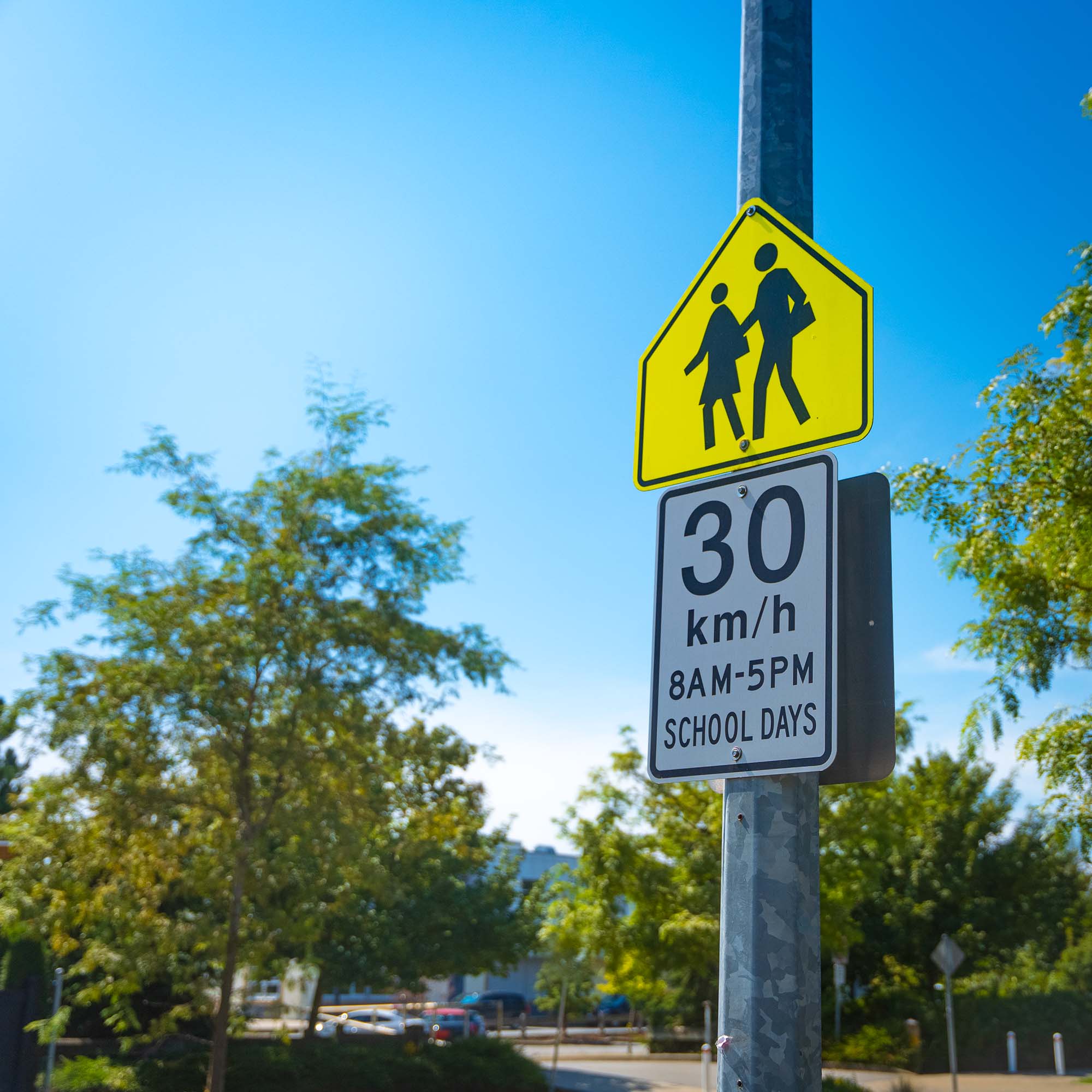Are you too 'Fast & Furious' in school zones?
This has probably happened to many of us—you’re driving along and then suddenly you realize that you’ve been driving at regular speed within a school zone where the speed limit is reduced. This mistake and others are probably more common than we think, but when it comes to children’s safety, shrugging it off with a “whoops” just doesn’t cut it.
And some of these common mistakes can come with a hefty fine ranging from $138 to $483 and from 3 to 4 driver penalty points. Collect more than 3 points on your driving record during an assessment period, and you'll pay a Driver Penalty Point (DPP) premium that’s billed to you even if you don’t own or insure a vehicle. But more important than fines and driver penalty points, the heftier cost is putting any child’s safety at risk.
Whether you’re a parent who drops off and picks up your child from school or a driver who needs to pass through a school zone, here are common driving mistakes made in school zones and tips on how to avoid them.

- Watch for school zone signs

While we won’t know where every school is located, we’re expected to watch for the signs that tell us that we’re entering a school zone. These five-sided, yellowish signs featuring two students with books in hand, are basically universal across the country. When you see these signs, slow down, watch for children, and be ready to stop at a moment's notice. Learn more about traffic signs in the ICBC Driving Guide.
- Stay aware in school zones at all times of the day
School zone hours are typically in effect between 8am - 5pm on school days unless other hours are posted (for example, some municipalities now have expanded school zone hours from 7am - 10pm). Keep in mind, many kids use school playgrounds outside of school times and on weekends, so continue to be alert for kids any time you drive through a school zone.
- Slow down
The school zone speed limit is 30 km/hr between 8am - 5pm on school days unless otherwise posted. In playground zones, a 30 km/hr speed limit is in effect from dawn to dusk, 365 days of the year.
- Yield to pedestrians at marked crosswalks
Drivers must stop for pedestrians who are occupying the crosswalk on the half of the road the vehicle is travelling. Of course, it’s also the responsibility of a pedestrian to remain on the curb or other safe place until there’s enough time for a driver to reasonably stop to give them the right of way. It’s also the safest rule for drivers to wait for as long as it takes for all pedestrians to reach the curb on the other side.
- Obey crossing guards and student safety patrollers
Drivers, pedestrians and cyclists must follow the instructions of a school crossing guard or student patroller. Some students are part of the BCAA School Safety Patrol program which helps support safe school zones throughout BC. Patrollers follow proper procedures to patrol a crosswalk and help other students cross the street safely.
- Avoid common distractions when behind the wheel
Leave the coffee cup in the holder and cell phone tucked away so you can pay close attention while driving. Expect the unexpected and look out for safety risks such as kids darting from cars, along with kids who are cycling and other pedestrians. It’s important to understand that using an electronic device while driving, including holding the device in a position in which it may be used, is distracted driving and is against the law. Learn more about distracted driving.
- Be patient
Focus on what you can control. No matter what’s going on around you, be patient and courteous. Reacting with extreme frustration may aggravate the situation and increase the risk of unsafe behaviours.

Additional safety tips for parents and guardians
Dangerous driving behaviours by parents and guardians are consistently reported in BCAA's annual surveys into school zone safety. Rushing during drop off and pick up times is the biggest issue. Learn more.
- Respect designated drop-off and pick-up areas and have your child exit and enter the vehicle on the side of the car closest to the sidewalk.
- Don't double park even for a moment—it blocks visibility for other children and vehicles.
- Don't attempt a U-turn or three-point turn— these are dangerous maneuvers that can confuse other drivers and pedestrians.
- Reduce congestion. Carpool, if possible or consider walking or cycling your child to school. If traffic is too heavy, find a legal spot to park a few blocks away from the school and walk your child the rest of the way.
For more details on BC Motor Vehicle Act sections, visit the Government of BC’s website or ICBC for fines and points for traffic offences.







